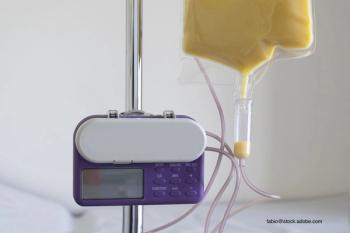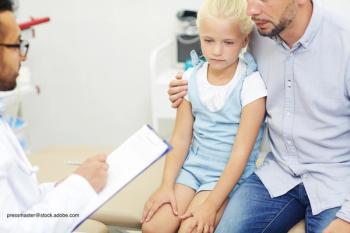
It’s been a difficult year, which makes understanding and providing appropriate care for mental health issues more important than ever.

It’s been a difficult year, which makes understanding and providing appropriate care for mental health issues more important than ever.

Pop culture can provide an avenue to discuss mental health. A report examines how often mental health is discussed in one of the most popular musical genres, rap.

The transition from adolescence to adulthood can be fraught. Could support during this period help lessen later mental health issues?

As the obesity epidemic has intensified, the number of public health campaigns have also increased. A report looks at the potential unintended consequences of these campaigns.

A presentation at the virtual 2020 American Academy of Pediatrics National Conference & Exhibition reminded practitioners of the 3 guiding principles of psychopharmacology.

Bullying is a far too common problem in childhood. A meta-analysis examines the effectiveness of anti-bullying interventions.

Suicide is on the rise among children and teenagers. Access to mental health care isn’t always as accessible in rural areas as it is in urban centers. Are pediatric patients in these regions lacking much-needed suicide prevention services?

The impact of COVID-19 on mental health is hard to measure. A report offers a look at how quarantine impacted the mental health of university students.

A new report looks into how environmental exposures can negatively impact an adolescent’s perceived stress.

When treating patients with anorexia nervosa and malnourishment, the current standard of care involves starting with low calories and then advancing with caution. A new investigation examines whether a higher calorie refeeding protocol could be more beneficial to patients with no increase in adverse events.

Eating may become disordered for some pediatric patients. A presentation at the virtual 2020 American Academy of Pediatrics National Conference & Exhibition gives guidance on how to identify and manage eating disorders in pediatrics.

For children experiencing suicidality, a quick and accurate assessment can mean a world of difference. A presentation at the virtual 2020 American Academy of Pediatrics National Conference & Exhibition offers a look at a tool that can help clinicians.

Puberty can be scary for any teenager, but for the transgender teenager it can be an absolute minefield. A presentation at the virtual 2020 American Academy of Pediatrics National Conference & Exhibition sheds light on how to provide appropriate, necessary care to this population.

Traumatic stress can be difficult to diagnose. A presentation at the 2020 virtual American Academy of Pediatrics National Conference & Exhibition offers insight on how to effectively find the diagnosis.

Gender-affirming medical care can improve mental health outcomes for gender incongruent children. An investigation looks at how age of presentation can impact those outcomes.

Previous research has shown adverse neuropsychiatric outcomes among infants who are born preterm and postterm. An investigation examines the outcomes of children born at term.

Many things in childhood can have a lifelong impact. A new study sheds light on how peer marginalization can impact cardiovascular outcomes in adulthood.

A mother’s health during pregnancy and in the first weeks following delivery can have an impact on her future health. A new report looks at how her mental health could also impact her child’s development through not only infancy, but childhood and adolescence.

The mental health of immediate family members can have an impact on the remaining family. A recent report offers insight on how maternal depression impacts a child’s development.

A good approach to knowing when a child needs referral for mental health evaluation, the Pediatric Symptom Checklist has evolved over the years to better screen children.

Eating disorders can be devastating and could lead to damage or even death. Can digital cognitive behavior therapy help?

The total psychological toll of the COVID-19 pandemic may not be known for years, but a report sheds some light on how it’s impacted the families of hourly employees in some of the industries hardest hit by the lock-downs.

Different therapy techniques, including careful exposures, can help children with food allergies overcome crippling anxiety over allergic reactions, according to a new report.

Active shooter drills have become a fact of life for America’s school children. The American Academy of Pediatrics (AAP) has issued a policy statement on them.

Mental health can have a major impact on a person’s life. A report looks at how mental health problems in early life can have a toll on some health behaviors.